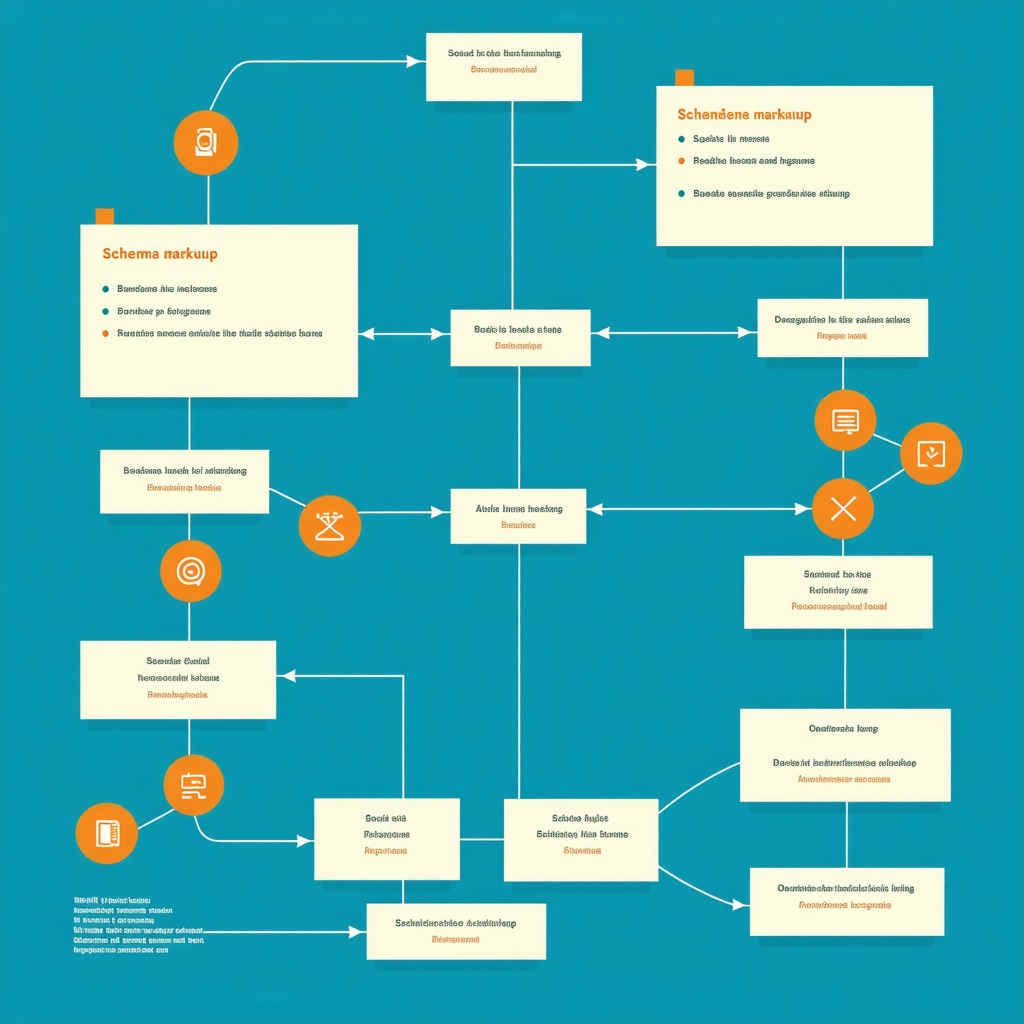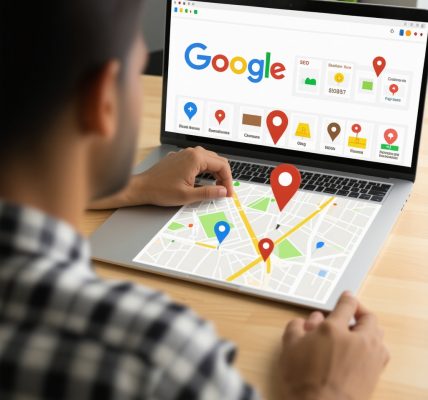Ready to Turn Google My Business into Your Local SEO Powerhouse?
If you’ve ever wondered why some local businesses dominate Google Maps while others are stuck in obscurity, the secret sauce often boils down to one thing: smart keyword research. Yes, finding the right keywords for your GMB profile can make or break your local visibility. Today, we’re diving into the art and science of GMB keyword research — with a splash of columnist flair, of course.
Why Bother with Keywords in Google My Business?
Imagine trying to sell ice cream in Antarctica without any special keywords — it’s a tough gig. Similarly, in local SEO, your GMB profile needs to be filled with the right keywords to attract the right customers. Keyword research helps you understand what your potential clients are typing into Google, from “best pizza near me” to “affordable plumbing services.” By aligning your profile with these search terms, you ensure you’re visible in the coveted local 3-pack.
Uncovering High-Impact Keywords: The Treasure Hunt Begins
The process of finding impactful keywords isn’t just about guessing; it’s about rigorous research. Start with Google’s Google Keyword Planner — a trusty tool that reveals search volume and competition levels. Combine this with local keyword modifiers like “near me,” “in [city],” or “best [service] in [area]” for hyper-targeted results.
What if I told you that even your competitors’ keywords are open secrets?
Spy on your competitors’ GMB profiles and see which keywords they rank for. Tools like Moz Local can help analyze citation consistency and keyword gaps, giving you a competitive edge. Remember, the goal isn’t just to rank but to connect with customers actively searching for your services.
Semantic SEO: Making Your GMB Profile Speak Human
Search engines love context. Instead of stuffing keywords, embed them naturally into your business description, services, and posts. For example, rather than repeating “plumber” endlessly, craft a story that includes related terms like “emergency plumbing,” “drain cleaning,” or “leak repairs.” This way, Google recognizes your expertise and relevance, boosting your chances to appear in diverse local searches.
Are you optimizing your GMB profile with the right keywords today?
It’s a question worth pondering. If you want to take your local SEO to the next level, start by digging deep into keyword research. For more in-depth strategies, check out our comprehensive local SEO optimization techniques. Also, don’t forget to keep an eye on the latest updates from Google’s own Google Business SEO guide — they’re constantly evolving.
Now, over to you: What’s your biggest challenge in finding high-impact keywords for your GMB profile? Share your thoughts in the comments below or reach out through our contact page. Remember, in the world of local SEO, knowledge is power — and the right keywords are your secret weapon.
Elevate Your Local SEO Game with Strategic Keyword Optimization
In the competitive world of local search, simply having a GMB profile isn’t enough. To truly stand out, your business needs to harness the power of advanced keyword strategies that resonate with your target audience. Incorporating precise, relevant keywords into your profile not only enhances visibility but also attracts high-intent customers actively seeking your services.
What Are the Latest Trends in GMB Keyword Research?
Staying ahead in local SEO requires continuous adaptation. Recent trends emphasize the importance of long-tail keywords, voice search optimization, and semantic relevance. Using tools like Google Keyword Planner alongside AI-powered keyword tools can uncover niche search terms that your competitors might overlook. Additionally, integrating geo-specific modifiers such as “near me,” “in [city],” or “serving [area]” remains crucial in capturing local intent.
How Do Competitor Insights Fuel Better Keyword Selection?
Analyzing your competitors’ GMB profiles can reveal valuable keyword opportunities. By identifying which terms they rank for and where gaps exist, you can craft a targeted strategy that leverages untapped search queries. Tools like Moz Local facilitate this process, providing insights into citation consistency and keyword coverage. Remember, the goal isn’t just to copy but to innovate and differentiate your profile in the crowded local search landscape.
Are You Overlooking User Intent in Your Keyword Strategy?
Understanding user intent transforms your keyword approach from mere keyword stuffing to meaningful engagement. For example, potential customers searching for “emergency plumber” have different needs than those looking for “best plumbing service in [city].” By aligning your content and keywords with specific user intents, you increase the likelihood of conversions. This nuanced approach is supported by insights from authoritative sources like comprehensive local SEO techniques, which stress the importance of context and relevance.
To deepen your understanding, explore our complete Google Business SEO guide for small businesses. And don’t forget—regularly updating your keywords based on seasonal trends, customer feedback, and new services can maintain your profile’s relevance and ranking power.
Have you integrated voice search keywords into your GMB profile yet? Share your experiences or ask questions in the comments below. For tailored assistance, visit our contact page. Remember, strategic keyword optimization is a continuous journey—stay innovative, stay visible.
Leveraging Latent Semantic Indexing (LSI) for Hyper-Relevant GMB Keywords
In the fiercely competitive arena of local SEO, understanding and implementing Latent Semantic Indexing (LSI) keywords can significantly amplify your Google My Business profile’s visibility. LSI keywords are semantically related terms that help search engines better comprehend your content’s context, thereby enhancing relevance and ranking potential. For instance, if you’re a bakery specializing in gluten-free products, incorporating related terms like “gluten-free baked goods,” “celiac-friendly bakery,” or “artisan gluten-free bread” can create a web of semantic signals that reinforce your primary keyword.
How can LSI keywords be systematically integrated into your GMB profile?
Begin with comprehensive keyword research tools like SEMrush or Ahrefs to identify semantically related search terms. Then, naturally embed these within your business description, service listings, and Google Posts. Remember, keyword stuffing is detrimental; focus instead on creating contextually rich content that speaks to both users and algorithms. This approach not only improves your chances of ranking for a broader array of search queries but also enhances user engagement by providing more detailed information.
The Power of Structured Data & Schema Markup in GMB Optimization
While keyword optimization is crucial, the integration of structured data via schema markup elevates your GMB profile’s search appearance. Schema markup acts as a translator between your business information and search engines, clarifying details like business type, services offered, operating hours, and geographic location. Implementing LocalBusiness schema, for example, can lead to enhanced rich snippets, which visually stand out in search results.

To visualize this, consider schema markup snippets embedded in your website’s code that align with your GMB profile, reinforcing consistency and authority in local search.
Can schema markup influence your GMB rankings directly?
While schema markup doesn’t directly rank your profile, it significantly improves click-through rates and user experience—factors that Google considers in its ranking algorithms. Moreover, accurate structured data can help your profile appear in specialized features like local packs, knowledge panels, and rich snippets, which are prime real estate in local search results.
Harnessing User-Generated Content (UGC) for Keyword Enrichment and Trust Building
User reviews, comments, and photos are gold mines for organic keywords and trust signals. Analyzing UGC can reveal the language your customers naturally use, often containing long-tail keywords and local identifiers that you might not have explicitly targeted. Encouraging detailed reviews that mention specific services, locations, or issues can boost your profile’s relevance for those queries.
For example, a review stating, “The emergency plumber arrived within 30 minutes and fixed my leaking pipe in downtown Manhattan,” adds valuable context and keywords that augment your profile’s relevance for emergency plumbing in Manhattan.
How can you systematically utilize UGC to refine your keyword strategy?
Implement review monitoring tools like GatherUp or Podium to extract common phrases and keywords from customer feedback. Use these insights to update your service descriptions, FAQs, and Google Posts, ensuring your profile continually adapts to evolving search behaviors and local trends.
As you sharpen your keyword strategy with these advanced tactics, remember that consistency and authenticity are your allies. Regularly updating your profile, engaging with reviews, and monitoring keyword performance will keep your GMB profile a dynamic asset in your local SEO arsenal. For a deeper dive into these techniques, explore authoritative guides from Search Engine Land and stay ahead of the curve.
Ready to elevate your local SEO game? Share your experiences or ask questions in the comments below. For personalized guidance, don’t hesitate to contact us through our contact page. The path to local search dominance is complex but conquerable with strategic insight and persistent effort.
How Can Advanced Keyword Strategies Catapult Your GMB Profile to the Top of Local Search?
In the ever-evolving landscape of local SEO, relying solely on basic keyword stuffing is a recipe for stagnation. Modern GMB optimization demands a nuanced understanding of semantic relevance, user intent, and competitive analysis. As industry leaders like Moz emphasize, leveraging comprehensive keyword research combined with sophisticated tools such as SEMrush or Ahrefs can uncover niche search queries that your competitors haven’t tapped into yet, giving you a significant edge. Incorporating long-tail keywords and geo-specific modifiers naturally into your profile content ensures your business appears in highly targeted local searches, boosting both visibility and conversion rates.
What Role Do Semantic Relevance and User Intent Play in Expert-Level Keyword Optimization?
Search engines now prioritize contextual understanding, making semantic relevance crucial. Embedding related terms and synonyms—such as “emergency plumbing,” “leak repairs,” and “drain cleaning”—within your descriptions and posts creates a web of relevance that search engines interpret as authoritative. Furthermore, aligning keywords with clear user intent—whether informational, navigational, or transactional—ensures your content resonates with what your potential customers are genuinely searching for. This approach, supported by Google’s AI models detailed in authoritative sources like Search Engine Land, helps your GMB profile attract high-quality leads that are ready to convert.
How Does Incorporating Schema Markup and Structured Data Amplify Keyword Impact?
Structured data, especially schema markup tailored for local businesses, acts as a bridge translating your profile data into rich snippets that stand out in search results. Implementing LocalBusiness schema, for example, clarifies your services, geographic area, and operating hours, enabling Google to display enhanced information—like star ratings, price ranges, and service menus—directly in search listings. According to experts at BrightLocal, these rich snippets not only improve click-through rates but also indirectly influence your rankings by signaling relevance and authority. Proper schema integration, therefore, magnifies your keyword efforts by making your profile more visible and enticing to searchers.
Can You Use User-Generated Content to Discover Hidden Keyword Opportunities?
Absolutely. Reviews, questions, and photos from your customers are treasure troves of organic keywords and local identifiers. Analyzing this UGC with tools like GatherUp reveals recurring phrases and specific service mentions—such as “urgent plumbing in downtown Brooklyn” or “best pizza near Central Park”—which can be strategically incorporated into your profile content. Encouraging detailed reviews not only builds trust but also enriches your keyword profile organically, improving your chances of appearing in diverse local searches. As noted by Moz Local, this continuous feedback loop ensures your optimization stays dynamic and aligned with customer language.
What Are the Risks of Over-Optimization and How Can You Avoid Them?
While aggressive keyword integration can yield short-term gains, over-optimization risks penalization by Google, leading to diminished visibility. To avoid this, focus on creating natural, engaging content that seamlessly incorporates keywords without sounding forced. Employing Latent Semantic Indexing (LSI) keywords—semantically related terms—can diversify your profile’s relevance while maintaining authenticity. Google’s algorithm updates, such as the helpful content update, underscore the importance of user-centric content. Regular audits, like those detailed in our GMB SEO audit checklist, help monitor keyword density and relevancy, ensuring your profile remains compliant and competitive.
Ready to elevate your GMB keyword game? Share your insights or questions in the comments below, and explore our comprehensive local SEO optimization techniques for actionable strategies that deliver measurable results. Remember, in the world of local SEO, mastering advanced keyword tactics can dramatically transform your visibility and customer engagement in 2025 and beyond.
Expert Insights & Advanced Considerations
1. Semantic SEO as a Differentiator
Emphasizing semantic relevance through Latent Semantic Indexing (LSI) keywords can dramatically enhance your GMB profile’s authority. Integrate related terms like “local plumbing services,” “emergency drain cleaning,” and “area-specific leak repairs” naturally within your descriptions and posts to create a web of semantic signals that search engines interpret as highly relevant, elevating your local rankings.
2. Structured Data Optimization
Implementing schema markup, such as LocalBusiness schema, clarifies your profile’s details for search engines, resulting in rich snippets and enhanced visibility. Properly structured data can improve click-through rates and indirectly influence your rankings by signaling relevance and trustworthiness, especially when combined with optimized keywords.
3. User-Generated Content Mining
Leverage reviews, questions, and photos as organic sources of long-tail keywords. Tools like GatherUp can analyze recurring customer phrases such as “urgent plumbing in Brooklyn” or “best pizza near Central Park,” enabling you to refine your keywords and content strategy to align with authentic customer language.
4. Balancing Optimization with User Intent
Align your keywords with specific user intents—informational, navigational, or transactional. For example, optimize for “emergency plumber” to attract urgent service seekers, while “best local pizza” targets those seeking quality options. This nuanced approach increases the likelihood of engagement and conversions.
5. Continuous Keyword Evolution
Stay ahead by regularly updating your keyword list based on seasonal trends, local events, and feedback. Use insights from AI-powered tools to identify niche queries your competitors overlook, maintaining a competitive edge in local search results.
Curated Expert Resources
- Google’s Official Local SEO Guide: Essential for understanding Google’s evolving algorithms and best practices.
- BrightLocal’s Rich Snippet and Schema Resources: Offers comprehensive tutorials on structured data implementation.
- GatherUp Review Monitoring Tool: Useful for extracting valuable insights from customer-generated content.
- SEMrush and Ahrefs: Industry-leading tools for advanced keyword research and competitor analysis.
- Moz Local: A trusted platform for citation management and local SEO auditing.
Final Expert Perspective
Mastering advanced Google My Business keyword strategies requires a sophisticated blend of semantic relevance, structured data, and authentic customer insights. By focusing on these high-impact areas, your local SEO efforts can reach new heights, ensuring your business not only ranks higher but also connects more meaningfully with your target audience. For those committed to staying at the forefront, continuous learning and strategic adaptation are non-negotiable. Dive deeper into these techniques and share your experiences—your insights could be the catalyst for someone else’s success in dominating local search in 2025 and beyond. Explore our comprehensive local SEO techniques to refine your approach today.




